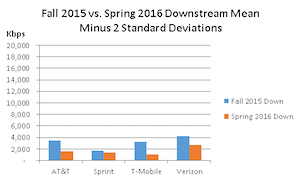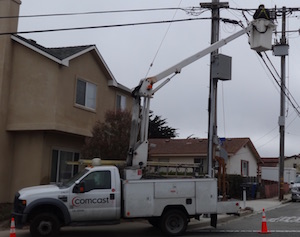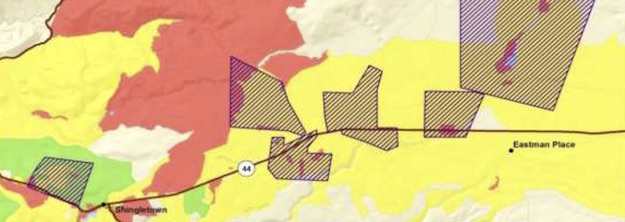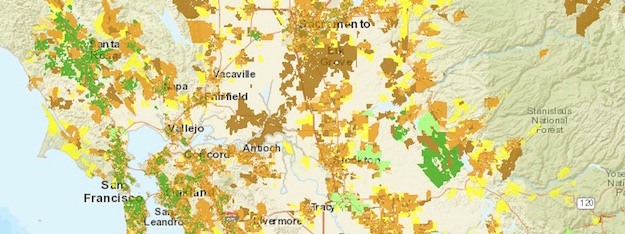Mobile carriers losing the data upgrade race to Californian demand

Click for the full picture.
You can get more bits per second from mobile broadband carriers in California, but your odds of getting those faster speeds at any given moment are dropping. That’s what the California Public Utilities Commission’s mobile field testing result are showing. You can read the excellent blog post by commission staffer Rob Osborne here. He shows that mobile broadband speeds are increasing, but sums it up diplomatically: “it’s hard to say, but it appears the likelihood of getting the average speed at a particular location is lower than before”.… More


![By Jerry Brown [Public domain], via Wikimedia Commons](https://www.tellusventure.com/images/2016/10/jerry_brown_signature.png)


![By ML5 (Own work) [CC0], via Wikimedia Commons](https://www.tellusventure.com/images/2016/9/taxi_crush.jpg)

![By Nicole-Koehler (Own work) [GFDL (https://www.gnu.org/copyleft/fdl.html) or CC BY-SA 3.0 (https://creativecommons.org/licenses/by-sa/3.0)], via Wikimedia Commons](https://www.tellusventure.com/images/2016/9/dripping_faucet.jpg)
